5 Foods to Avoid Giving Your Furry Friend and 5 They Will Love

As dog owners, we often find ourselves tempted to share our delicious meals and snacks with our furry friends. While some human foods are safe for dogs to consume, it's crucial to understand that not all foods are suitable for their sensitive digestive systems. To help you make informed decisions about what to feed your canine companion, this blog post will highlight five foods dogs should avoid and suggest five dog-friendly alternatives they'll absolutely adore.
Foods Dogs Shouldn't Have:
1. Chocolate: While chocolate is a delectable treat for humans, it contains theobromine, a compound that dogs metabolize slowly, making it toxic for them. Even a small amount of chocolate can cause symptoms such as vomiting, diarrhea, rapid breathing, increased heart rate, and, in severe cases, seizures or even death. To satisfy your dog's sweet tooth, opt for specially formulated dog treats instead.
2. Grapes and Raisins: Grapes and raisins, although healthy for humans, can lead to kidney failure in dogs. Consumption of these fruits can cause vomiting, diarrhea, lethargy, and decreased urine production. Ensure you keep your canine companion away from all grape varieties, including seedless grapes, raisins, and currants.
3. Onions and Garlic: Onions and garlic, whether raw, cooked, or in powdered form, contain compounds that can cause damage to a dog's red blood cells, leading to anemia. Symptoms may include weakness, vomiting, diarrhea, and pale gums. It's crucial to avoid feeding any foods seasoned with onions or garlic and to be cautious when using products that contain these ingredients.
4. Avocado: While avocados are a nutritious food for humans, they can be dangerous for dogs. The fruit's persin content can lead to stomach upset, vomiting, and diarrhea in canines. The high-fat content in avocados can also potentially cause pancreatitis in dogs. To provide your furry friend with healthy fats, consider offering them coconut oil or salmon as alternatives.
5. Alcohol: Hopefully we shouldn’t have to tell you this but alcohol, in any form, is toxic to dogs. It can cause severe central nervous system depression, leading to symptoms such as difficulty breathing, coordination issues, tremors, and even coma. Even small amounts can be dangerous, so ensure your dog never has access to alcoholic beverages.
Foods Dogs Can Have and Will Love:
1. Carrots: Crunchy and low in calories, carrots are an excellent snack for dogs. They are high in fiber and vitamins, promoting healthy digestion and providing a satisfying chew. Serve them raw or lightly steamed for a refreshing and nutritious treat that your dog will love.
2. Blueberries: Rich in antioxidants and vitamins, blueberries make a fantastic addition to your dog's diet. They offer numerous health benefits, including supporting brain function and boosting the immune system. Offer a handful of fresh or frozen blueberries as a delightful and healthy snack.
3. Peanut Butter: Peanut butter, as long as it doesn't contain xylitol (a sweetener toxic to dogs), is a fantastic treat that most dogs adore. It's a great source of protein and healthy fats, and it can be used as a filling for treat-dispensing toys or as a training reward.
4. Salmon: Cooked salmon is a terrific source of omega-3 fatty acids, which promote a healthy coat and skin. It's also rich in protein and vitamin D. Ensure the salmon is thoroughly cooked, free of seasoning and bones, and avoid offering it in excessive amounts.
5. Sweet Potatoes: Sweet potatoes are packed with vitamins A and C, fiber, and antioxidants, making them an ideal alternative to processed dog treats. Cut them into slices or cubes, lightly cook or bake them, and serve them as a tasty and nutritious snack.
While it's tempting to share our food with our canine companions, it's vital to prioritize their well-being by providing them with a diet that suits their specific needs. Remember, the foods we enjoy might not always be safe or suitable for our furry friends. By avoiding harmful foods such as chocolate, grapes, onions, garlic, and alcohol, and incorporating dog-friendly alternatives like carrots, blueberries, peanut butter, salmon, and sweet potatoes, you can ensure your four-legged friend enjoys a healthy and enjoyable diet. Always consult with your veterinarian to create a well-balanced and safe meal plan for your dog, keeping in mind their individual dietary requirements and any specific health considerations.














